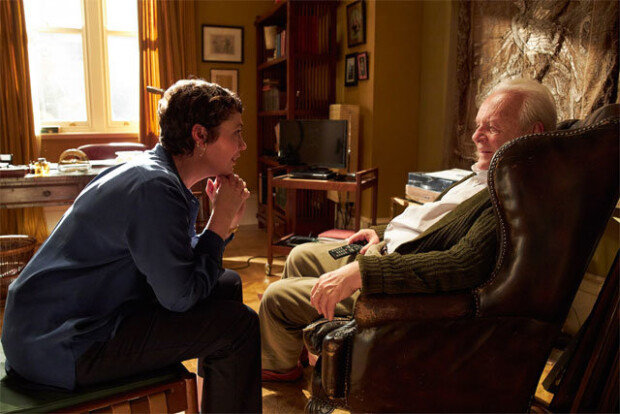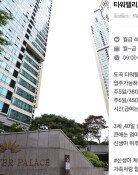Audiences are driven into fear following a dementia patient’s perspective
Audiences are driven into fear following a dementia patient’s perspective
Posted March. 29, 2021 07:26,
Updated March. 29, 2021 07:26

Stories of those who suffer from dementia and their adult children who struggle to take care of their ailing parents have been one of the most oft-described themes by many documentary films and fiction movies. We often happen to find them real around us as well. French novelist Florian Zeller adopts such a mundane topic not only in playwriting but also in the movie “The Father.” What makes his directing of the movie all the more special is that the plot unfolds from a viewpoint of a character with dementia, which gives audiences as high level of suspense and fear as spine-chilling horror movies by showing how things come to swirl into an irreversible mess.
“The Father,” scheduled to be premiered on April 7, is nominated for six awards at the 93rd Academy Awards -- Best Picture, Best Actor (Anthony Hopkins), Best Supporting Actress (Olivia Colman), Best Writing, Best Art Direction and Best Editing. It will vie with Lee Isaac Chung’s “Minari” for three awards – Best Picture, Best Actor (Steven Yeun) and Best Actress (Youn Yuh-jung).
The movie story begins with the scene of a 80-year-old man named Anthony (Anthony Hopkins) listening to classical music in his cozy house located in London. Around the first five minutes’ scenes of him talking to his daughter Anne (Olivia Colman) who visits his father’s place are the only part that audiences are allowed to watch without any uncomfortable and unsettled feelings. Their conversation suddenly turns into a fearful reality despite their efforts to make it normal and ordinary. Forgetting where he puts his watch almost every day, Anthony believes that his former caregiver has stolen it. As Anne is supposed to hire a new caregiver for her father before leaving for Paris, she gets more concerned over time that Anthony refuses to take in a new one by saying that he is completely fine.
With space-time driven into collapse, Anthony mixes up his close friends’ faces and names. Hopkins’ excellent acting skills immerse audiences in his world upside down. The seasoned actor shows various aspects of the character from a grumpy old man who wrongly believes that her daughter tries to send him to a sanatorium to a childlike weak man weeping because he misses his mother being left in a care center.
Hopkins’ interview with the New York Times comes as a surprise to his fans. After shooting a scene where he weeps at a sanatorium, he said that he asked the director to give him a break to get his emotions back to normal before the next shooting. Spending around 60 years acting various roles to put himself into their fictitious lives, the professional actor was not able to control the grief and sorrow of missing his dead father during the shooting in question. Whoever watches this film may relate to the weakness of getting aged in the midst of time passing by and the consequent bitterness of facing an unavoidable reality.
Jae-Hee Kim jetti@donga.com
Headline News
- Med professors announce intention to leave hospitals starting Thursday
- Bridge honoring Sgt. Moon Jae-sik unveiled in Pennsylvania
- Chief of Staff Chung tells presidential secretaries to stay away from politics
- US FTC bans noncompete agreements
- N. Korea launches cyberattacks on S. Korea's defense companies







